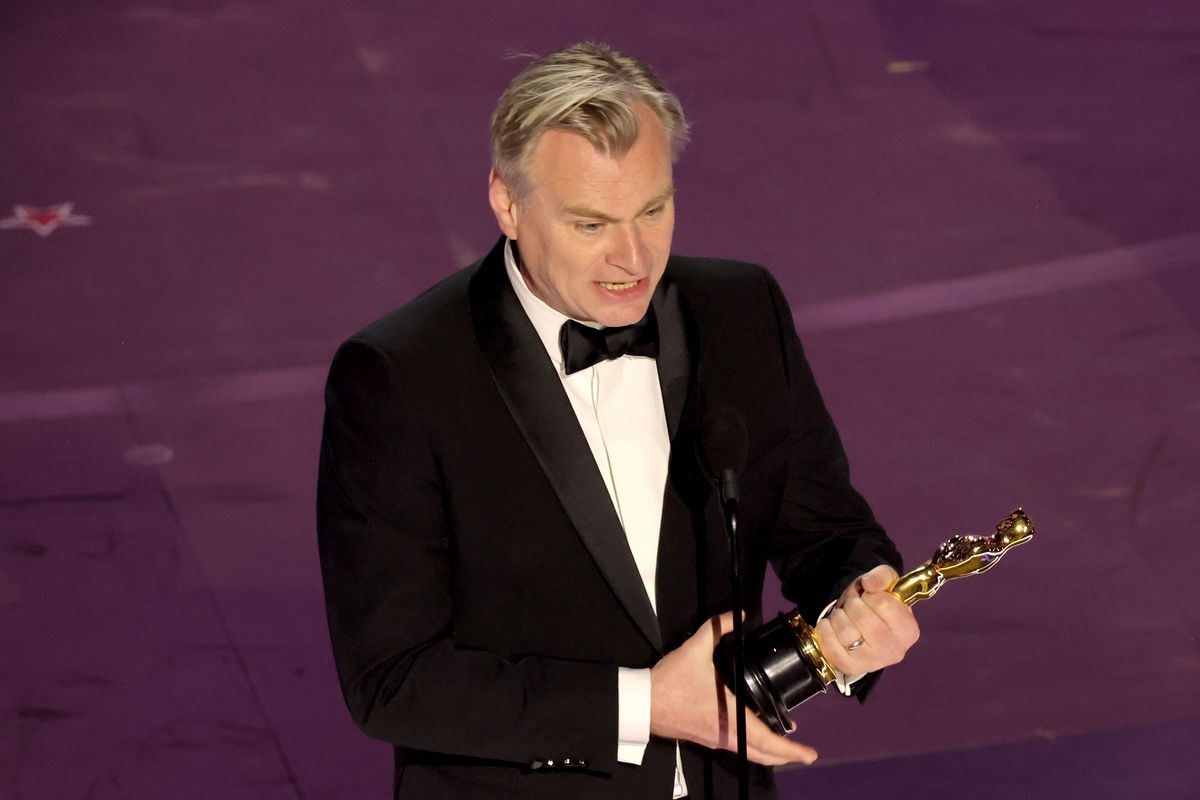“Nolan is a pseudointellectual who makes middlebrow blockbusters, but he happens to work in a period in which popular discourse (especially online) is dominated by pseudointellectuals who love middlebrow blockbusters… as i’ve said before, he’s a dumb guy’s idea of a smart guy, and that’s why the internet loves him,” Twitter user @Kali_de_Armas declared after Christopher Nolan won his first Academy Award for Best Director. Not to single out this person, but not only is this criticism of him played out after over a decade of this being the go-to argument for his detractors, but it also misunderstands what Nolan wants to do with his films, the role he plays in Hollywood, and why he matters in the current era of studio filmmaking.
Nolan is his generation’s James Cameron. Only Denis Villeneuve can reasonably claim to have similar ambition and ability to convey scale among populist filmmakers. Calling Nolan a pseudointellectual because he wants to put ideas in his movies (even if those ideas are a little half-baked at times) is disingenuous. He doesn’t think he’s smarter than the audience or that he’s teaching the audience something. Nolan just wants to explore the ideas that interest him. When Nolan speaks of “Tenet” and tells viewers it’s more important to feel the film rather than understand it, he’s not saying that his writing is too smart for a mass audience to understand. He’s saying it because he knows that to connect with mass audiences, it’s more important to be emotionally stimulating than intellectually stimulating. If you can do that while not compromising a film’s thematic depth or weight, you’re working at a higher level than anyone else in Hollywood.
We should be begging for more Hollywood filmmakers to be as interested in form and craft as Nolan is. Nobody else making films this big does as much to draw audiences' attention to cinema’s formal elements and makes clear what the medium does that other arts don’t: capture movement and compress and distort time and space through editing. His signature cross-cutting sequences create an overwhelming sense of propulsion, keeping the energy up even if the things shown on screen aren’t all that exciting. But they also force viewers to reckon with how editing manipulates time to turn disparate stories into a cohesive whole. Nolan’s biggest fascination as a writer is structure, but more importantly, he’s interested in deconstructing it. His use of non-linear narrative in “Dunkirk” and two parallel narratives in “Oppenheimer” isn’t a gimmick. It forms clear connections in stories where things may be more complex. Nolan’s films are dense, and he intentionally lays out where to focus your attention and when to pick up most of what you need to know. You could argue that he should give his audience more credit, allowing them to connect the dots themselves, but when making films at this scale for a broad audience, you do have to hold their hand a bit.
Nolan may go heavy on exposition at times, but the way he structures his films tells you just as much, if not more, about what is happening and how it impacts the characters than his overwritten dialogue. So many of the biggest films coming out of Hollywood right now are either made by veterans of television or small, script-driven indie filmmakers, and they don’t know how to visually tell a story of this size. Nolan does, and he does it better than any filmmaker of his generation.
If your issue with Christopher Nolan being given the Best Director Oscar is that he makes movies for mass audiences or that he’s not nearly as smart as he thinks he is, you are undervaluing what cinema can do as a popular art form when someone is interested in more than just what happens in the movie. I think we should celebrate him. Big-budget Hollywood studios need to take notes. You can make ambitious, risky films that appeal to mass audiences. The likes of Jordan Peele, Damien Chazelle, and Greta Gerwig are following close behind. We need more filmmakers like that, but studios need to give control back to the directors.

